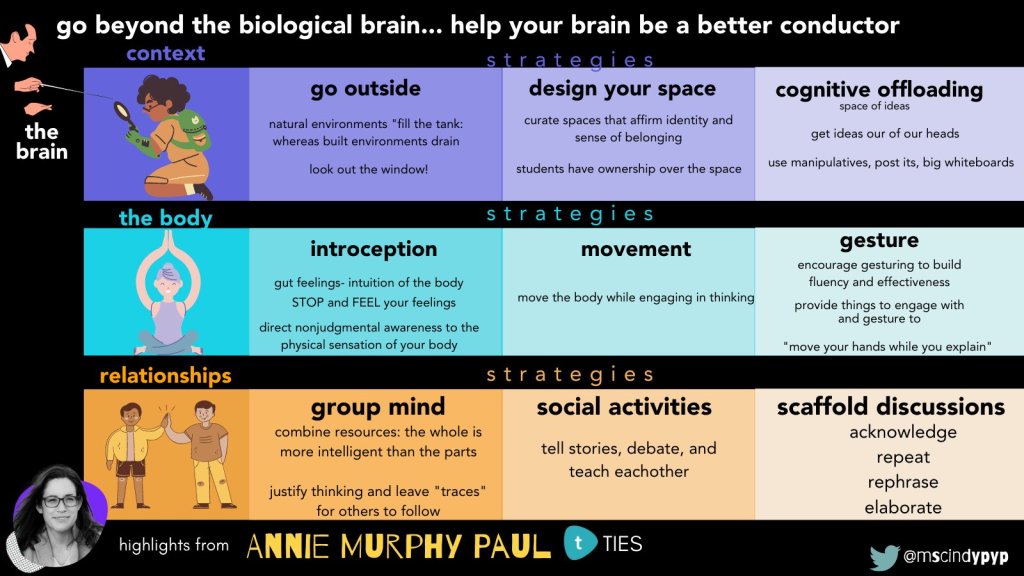The Extended Mind: The Power of Thinking Outside the Brain by Annie Murphy Paul (A Guide for Educators)
As an educator who . . . began my career as an outdoor and experiential-based counselor; loves and studies educational trends; and teaches elementary students, and pre-service and in-service teachers; I believe good teachers naturally do what’s best for their students. This is in spite of (all meanings intended) of the multiple, and often conflicting and changing mandates placed on them.
With that said, I was excited to hear Annie Murphy Paul discuss her new book, The Extended Mind: The Power of Thinking Outside the Brain, at toddle TIES.
Over many years of elementary school, high school, and even college and graduate school, we’re never explicitly taught to think outside the brain; we’re not shown how to employ our bodies and spaces and relationships in the service of intelligent thought. Yet this instruction is available if we know where to look; our teachers are the artists and scientists and authors who have figured out these methods for themselves, and the researchers who are, at last, making these methods the object of study. For humans these [methods] include, most notably, the feelings and movements of our bodies; the physical spaces in which we learn and work; and the other minds with which we interact—our classmates, colleagues, teachers, supervisors, friends. (https://www.amazon.com/Thinking-Outside-Brain-Annie-Murphy/dp/0544947665)
From The Harvard Book Store:
The Extended Mind outlines the research behind this exciting new vision of human ability, exploring the findings of neuroscientists, cognitive scientists, psychologists, and examining the practices of educators, managers, and leaders who are already reaping the benefits of thinking outside the brain. She excavates the untold history of how artists, scientists, and authors—from Jackson Pollock to Jonas Salk to Robert Caro—have used mental extensions to solve problems, make discoveries, and create new works.
What we need to do, says acclaimed science writer Annie Murphy Paul, is think outside the brain. A host of “extra-neural” resources—the feelings and movements of our bodies, the physical spaces in which we learn and work, and the minds of those around us— can help us focus more intently, comprehend more deeply, and create more imaginatively.
In this book, she proposes a series of strategies that for me reflect best practices in education and ones that I typically use with my students (of all ages) on a regular basis. As mentioned earlier, I believe good educators often naturally integrate these practices in their classrooms:
created by Cindy Blackburn
Here is an written summary of these keys points and strategies:
Source: https://jenniferlouden.com/wp-content/uploads/2021/07/Paul.THE-EXTENDED-MIND.list-of-takeaways.pdf


Leave a comment